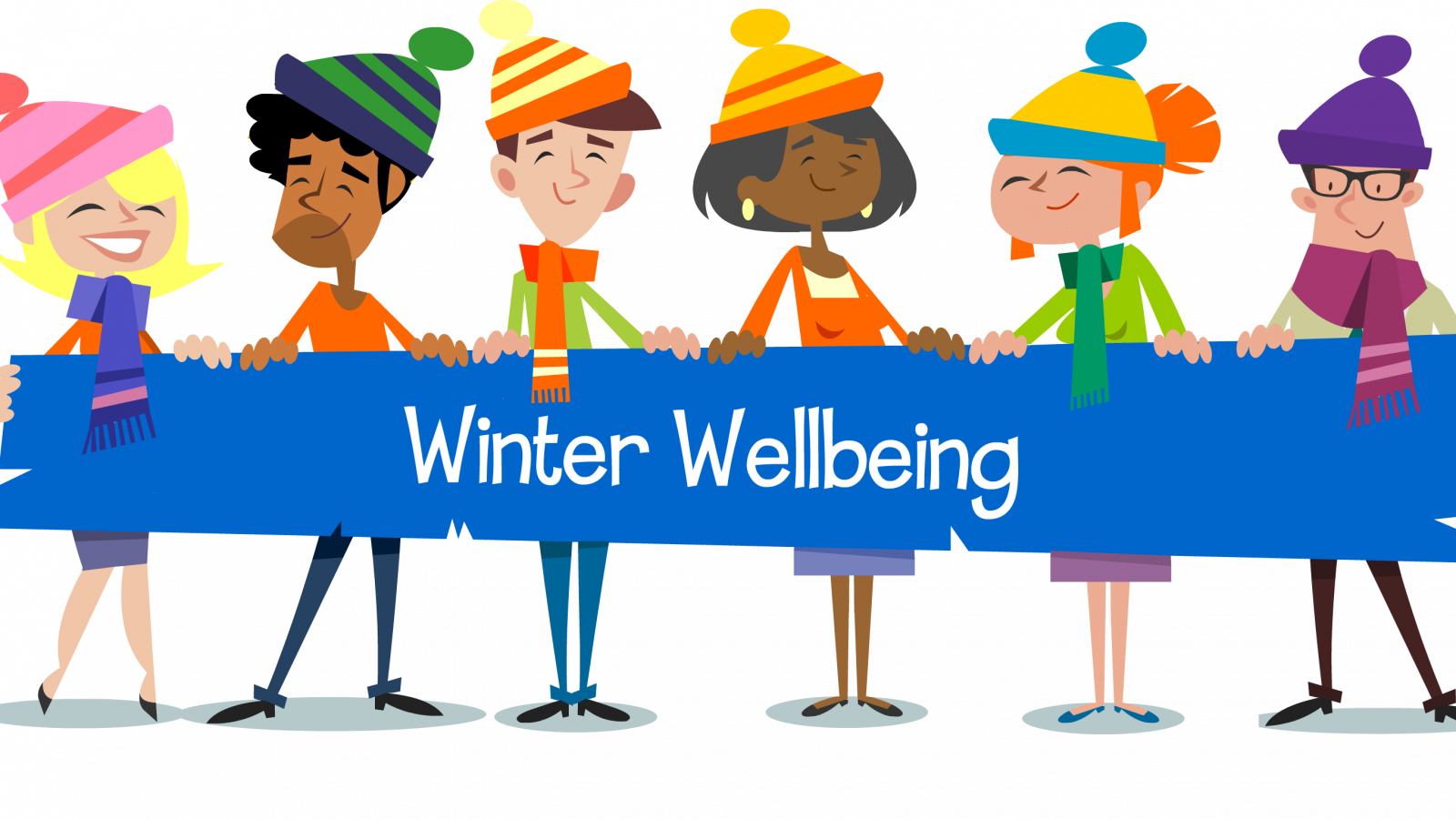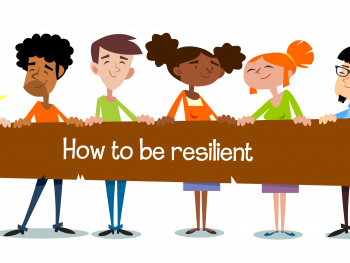As the nights draw in and the central heating is turned on it is a sure sign that winter is upon us and even during the best of times this can be a challenging season both emotionally and physically.
Many of us may be feeling a bit anxious by the prospect of a winter with all the hardship and disruption that the pandemic has inflicted upon us. Something else that can occur during the winter is Seasonal Affective Disorder (SAD) which is sometimes known as “winter depression” because the symptoms are usually more apparent and more severe during this time of year.
The change of season and indeed the pandemic are both something that we cannot control however we do have absolute control of how we can respond so making healthy choices is essential. We need to focus on what is in our control and prioritise self-care by building our winter resilience. Raising awareness of all the things that we can do to beat the bugs and blues will help us all to support a strong immune system and look after our mental health.
This winter will provide us all with an opportunity to learn about new ways of doing things that we may not have thought about exploring before. By putting wellbeing at the heart of our day we will be healthier, more energised and more able to cope with the challenges we are all experiencing.
Winter is a time when we can let our wellbeing habits slide, if we are not careful. Faced with shorter days, less natural light and colder temperatures, it can be easy to slip into unhelpful lifestyle patterns. The best that we can all do is to put some extra effort into looking after ourselves and embedding positive and healthy habits.
So, here are some practical tips to help you to boost your wellbeing and resilience this winter:
Positively embrace the winter
There are a lot of wonderful things about the winter, and it can be a magical time of the year. Snuggling up inside in the warmth when it is wet and wild outside can be comforting and on clear bright sunny days it can be incredibly refreshing to wrap up and go for a bracing walk.
Christmas may be different this year, and we may well need to be a bit more creative about making the absolute best and most of what is available to us. This is the time to put your head up and look around you and actively seek out all the positives and recognise all the things you have to be grateful for. Keeping a gratitude journal can be really helpful.

Manage your relationship with stress
There is a lot of heightened stress around at the moment which often is reinforced by uncertainty and disruption and the way that you deal with stress is so important when it comes to resilience. I would go as far as saying that the relationship you have with your stress levels is the most important one in your life. Establishing a deep understand of what your stress triggers are, how it manifests and affects you and what you do to manage it is key.
Stress is not the enemy and some stress can be necessary, however when it becomes overwhelming it can potentially lead to burnout. Stress that has become out of control is often cited as a nasty precursor to deflating your immune system and leaving you more vulnerable to viruses. If you are feeling run-down and overstretched it is time to slow down, sharpen your stress management skills and establish a healthier pace.

Soak up the sunlight
Getting enough sunlight can be challenging during the winter months, particularly if you work long hours inside during the day. A lack of sunlight however can make you feel sluggish and tired so any opportunity you can take to get outside and put your face up to the sky will give you a healthy boost. Soaking up as much natural daylight as you can is very helpful even when the sun isn’t shining!
If for whatever reason you can’t get outside, then light therapy can be effective for seasonal depression. A good way to get light therapy at home in the winter is to sit in front of a light box for 30–60 minutes each day. Light boxes give out very bright light at least 10 times stronger than ordinary home and workplace lighting.

Get outside as often as possible and get some fresh air and exercise
To keep your immune system healthy, exercise is one of the best things that you can do. Wrap yourself up and go for a lovely big walk. This is even better than going to the gym because you will get lots of fresh air and natural daylight. The cooler weather is great to invigorate and stimulate the senses. Tracking your steps is a great way to keep motivated and aiming to walk 10,000 steps a day is a great goal.

Keep up those hygienic habits
Good hygiene habits are so important for our overall health and wellbeing and now obviously more than ever. It is extremely important to wash our hands often and well.
Follow these four steps every time you wash your hands.
• Wet your hands with clean, running water, and apply soap
• Lather your hands with the soap for at least 20 seconds
• Clean the backs of your hands and between your fingers
• Rinse and dry your hands thoroughly
NB – It is a good idea to keep carrying antibacterial hand wipes and/or a small bottle of sanitiser for extra hygiene.
If you use paper tissues throw them away after each use rather than keep using the same one as the germs will continue to transfer to your hands. Also make sure that you don’t leave them lying around to avoid spreading your germs to other people.

Reduce your refined sugar intake
Too much refined sugar can reduce the ability of white blood cells to kill germs and the immune-suppressing effect of refined sugar starts less than thirty minutes after ingestion and may last for five hours. When it’s cold it can be very tempting to reach out for those comfort foods and get a quick sugar fix. Before you do, however, stop and remind yourself what it is doing to your immune system. This is the time of year it really needs all the help it can get.

Boost your vitamins
Vitamin C is at the top of the list among natural immune boosters for your body. The research on the immune boosting properties of the vitamin has been extensive and eating lots of delicious seasonal fruit and vegetables will help.
Vitamin D is also known as the sunshine vitamin and is produced by the body as a response to sun exposure; it can also be consumed in food or supplements. Having enough vitamin D is important for maintaining healthy bones and teeth. Most people can make enough vitamin D from sun exposure during the summer; however, synthesis can be inadequate in the winter so you may need an extra boost.
NB – If you are on any medication it is really important that you seek advice from your doctor before taking any supplements.

Keep hydrated
Water may not be the drink of choice in the winter, however keeping hydrated is one of the best things that you can do to keep healthy, and it is vital for all bodily functions. An important part of flushing out bacteria is the actual flushing! By keeping hydrated you will feel more alert and energised. There are also lots of delicious herbal teas available and these will also add to your recommended quota of around two litres a day.
Drinking herbal teas is a good way to increase your fluid intake and even adding chopped up pieces of your favourite fruit or even cucumber to water can make it taste delicious.

Demonstrate compassion and support others
This has already been a very challenging year for so many and especially for those who live alone. The winter and the festive season can really emphasise loneliness and this is the time to support each other in any way that we can.
There are so many ways to extend the hand of human kindness and consider all the different and creative ways to connect. Whilst we may not be able to hold someone’s hand or give a reassuring hug there are many ways that we can show people we care about them.
For updates for future blogs, free webinars and various other useful resources please do join my newsletter.















 Celebrating World Mental Health Day
Celebrating World Mental Health Day


